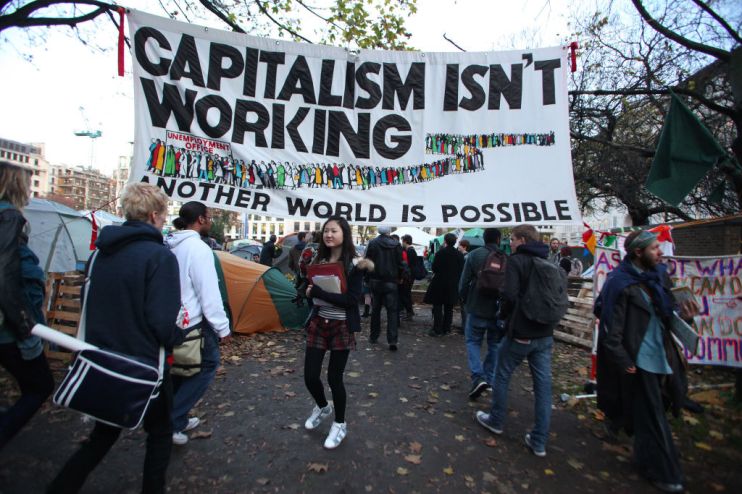Our capitalist system is in crisis — here’s how we can reboot it

Capitalism and the market economy are in trouble.
As the benefits of our capitalist system accrue to the already wealthy while a huge swathe of the population continues to struggle, many are questioning whether inequality is built into the current system — which therefore needs overthrowing with statist intervention.
Others cling on to their ideological faith — blind to any sort of evidence — that markets, left to their own devices, will sort everything out, eventually.
Both belief systems represent a triumph of dogma over reality; bone-headed ideology crowding out the development of the creative solutions we need to explore.
Yet there are ways we can tackle these challenges, by taking new approaches to business and to the economy that allow everyone involved to share in the prosperity created.
I put forward some of these ideas in my latest pamphlet, “Re-booting Capitalism: A liberal, progressive vision for defeating the statist Left and the populist Right”, published this week by the think tank Radix.
We all need to accept that we cannot separate the economic from the moral. Business can only exist and thrive with the democratic consent of the population. Its primary purpose is not to make as much money as possible, in whichever way possible, independent of any ethical framework.
The American philosopher Ralph Waldo Emerson put it like this: “Doing well is a result of doing good. That’s what capitalism is all about.” Or at least, that’s what it should be about. And this idea needs exploring again, with a renewed focus on “purpose” rather than shareholder value as the driving force for business.
Of course, translating the ambiguous concept of “purpose” into business practicality is proving to be a challenge, as businesses remain under pressure in an uncertain political and economic environment.
Yet there are always ways in which policy initiatives can help those who wish to travel down this road — and to encourage others to do so. That is what I explore in my report.
We must start by accepting that conventional “solutions”, namely getting more people into jobs, haven’t worked — and won’t work. We have reduced unemployment but replaced it with low-wage, uncertain employment. In-work poverty is one of the biggest policy challenges, in the UK and beyond.
And a job is only the start. Personal prosperity matters, yes. Yet people are increasingly recognise that it is insufficient. They also care about other things — clean air, sound mental health, a sustainable natural environment, and having a personal stake in the future of their own communities.
There are a number of initial steps that could begin to address these seemingly intractable issues: making it easier to create employee-owned businesses; differential corporate tax rates that reward socially responsible businesses; reform of company law to broaden, by statute, directors’ duties beyond shareholder primacy; using public procurement as a powerful lever to encourage responsible and sustainable business practice; and radically devolving political power to enable the creation of place-based economies responsive to the needs of local communities and able to harness the skills and talent that exist in every corner of the UK.
And there’s more: we could design a responsible and not fiscally profligate Green New Deal to ensure that business plays a central role in confronting the climate emergency and in restoring environmental damage, and put pressure on competition authorities to wake up and defend the competitive market system to prevent it from falling into a monopolistic, rent-extracting model.
We could make lifelong learning and re-training the rule rather than the exception; champion the flexible working week, thereby offering employment opportunities to many more people, particularly women; and incentivise companies to go beyond a transactional and unreliable relationship with employees to focus on long-term employee wellbeing.
A growing number of businesses are already moving in this direction, and we should support them. Yet they are hampered by an outdated, obsolete public policy framework that penalises forward-looking businesses rather than rewarding them.
We are stuck in a public policy environment that favours the laggards rather than the innovators. If we are to save our market capitalist system, this has to change.
Main image credit: Getty